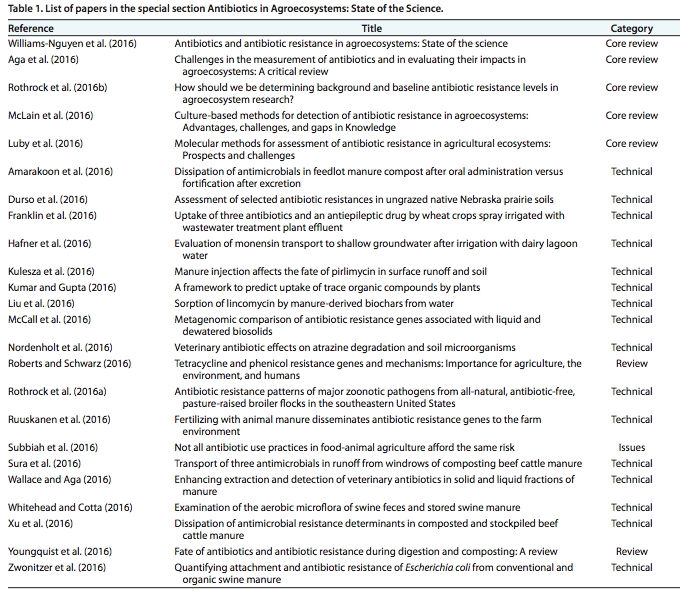A great review has come out on the use and ramifications of antibiotics in agroecosystems. “Antibiotics in Agroecosystems: Introduction to the Special Section” by Allison Frankiln et al is a review that attempts to get everyone on the same page about antibiotics, antibiotic resistant bacteria, and antibiotic resistant genes in the environment. The article highlights blaring knowledge gaps in the understanding of the fate of antibiotics in our environments, which I will personally attest to how difficult this actually is to do. The article makes a passing comment on this, but I don’t think it emphasizes enough that bacteria can be naturally resistant to antibiotics, making it really hard topic to study. Furthermore, it is really hard to characterize the microbial composition of an environmental system due to a lack of a pristine system, and variable and heterogeneous environments.
Experimental designs aside, there are no clear methods to measure antibiotics or antibiotic resistance in the environment. Change in a system is hard to measure due the reasons I just mentioned. Additionally, it’s really hard to determine how antibiotic resistant bacteria and genes transform when they enter a new environment. As the paper suggests, this knowledge gap could have substantial consequences of human, animal, and ecological health.
Antibiotics are used seemingly everywhere in today’s world. We should be terrified by not only how easily antibiotic resistance can spread through an environment, but also by how connected all of our systems are for this transfer to take place. This paper does a fantastic job at identifying priorities about the future of antibiotic resistant research. It also does a fantastic job at summarizing existing literature on the topic in this table:

Another fantastic part of this paper is a comprehensive glossary of terminology that are used to talk about antibiotic resistance, experimental methods of measuring antibiotic resistance, and even a few legal regulatory terms. I’ll be printing this and posting at my desk.
